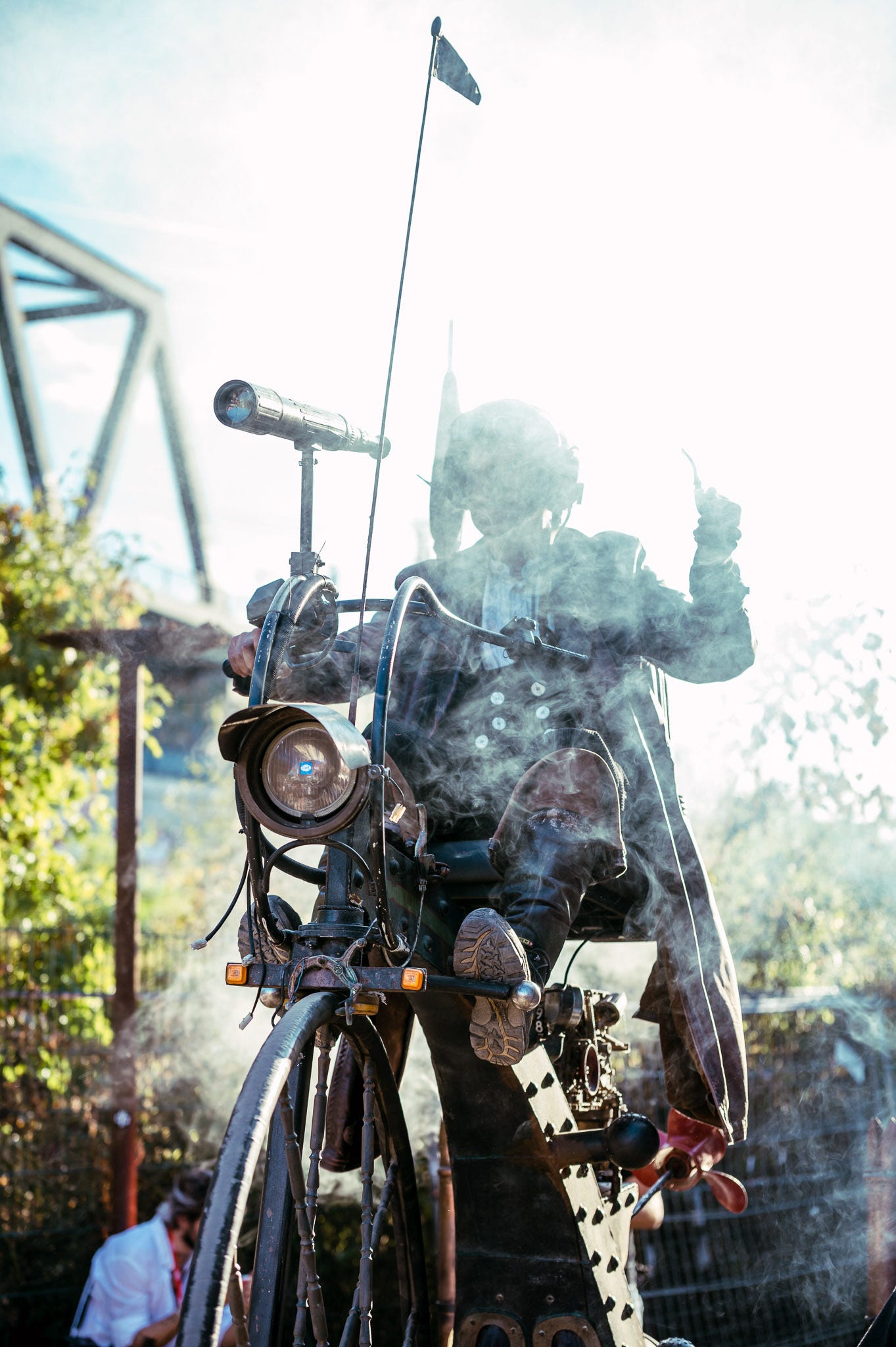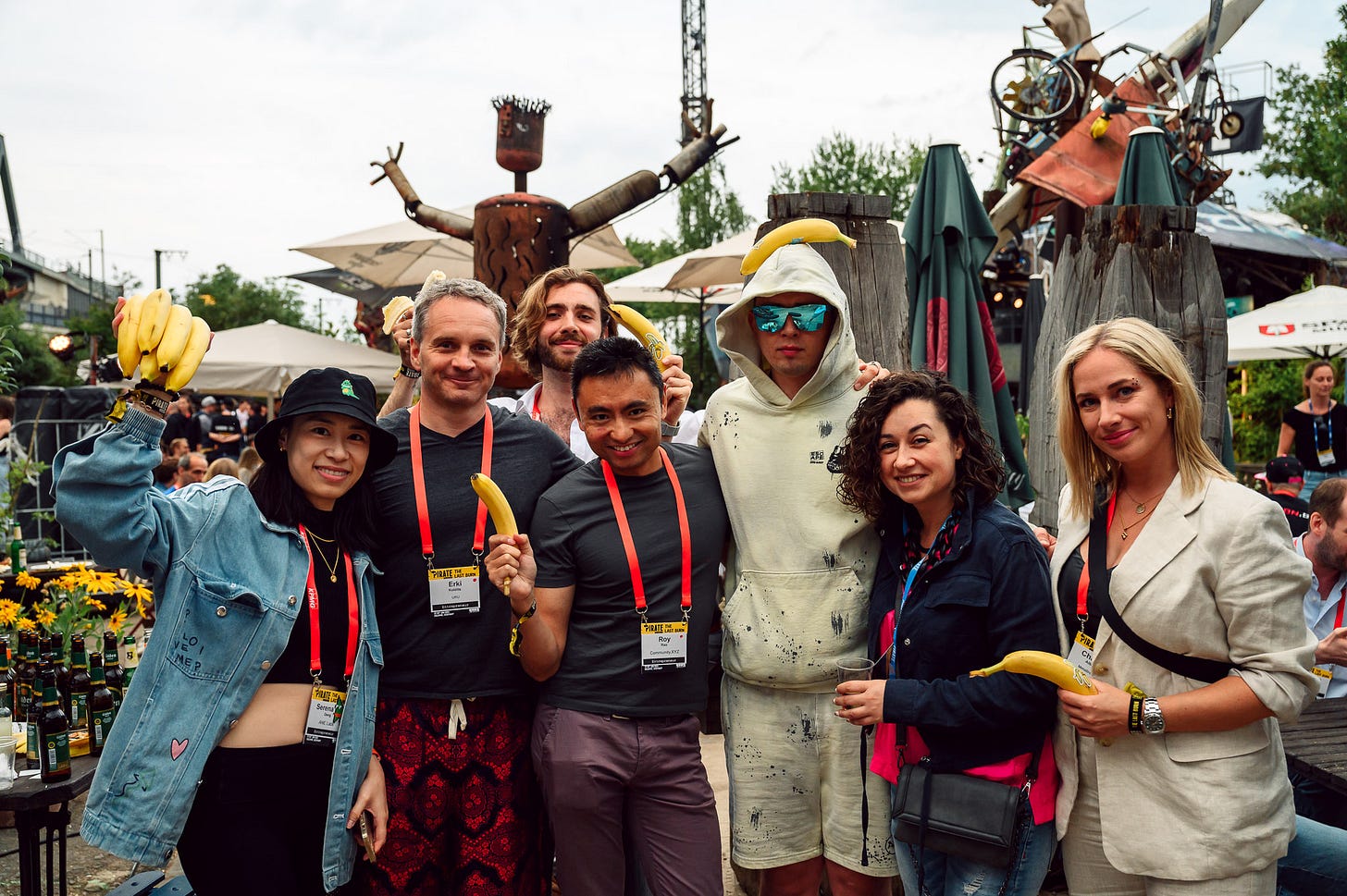Being Human is not a Bug
On transhumanism, tech ambition, and the radical act of staying human - and what we must get right to #SteerTheMachine
When asked whether the human race should endure, Peter Thiel - PayPal co-founder and Palantir chairman - paused. The silence that followed stretched uncomfortably long. His eventual "yes" sounded less like conviction and more like obligation - the response of someone who seems genuinely uncertain whether humanity in its current form is worth preserving.
This moment, buried in a recent New York Times interview, exposes the mindset of someone who sees humans not as the protagonists of their own story, but as version 1.0 of something that needs urgent upgrading.
A recent LinkedIn post I wrote about this interview sparked a flood of reactions. The comments - and my reflections on them - got me thinking more deeply about what's at stake when our most powerful technologists fundamentally misunderstand the human condition.
It also reassured me that #SteerTheMachine is a fitting theme for this year’s PIRATE Night on August 28th.
You can watch the full, often bizarre interview for yourself.
Throughout the interview, Thiel shares his views on AI, geopolitics, then goes on an extended meditation on the Antichrist.
Most notably, Thiel's Antichrist isn't some power-hungry tech overlord. It's someone who promises protection from technology. A Greta Thunberg-like figure - he suggests - someone who exploits fears of AI catastrophe to justify global surveillance and authoritarian control.
When the interviewer points out the glaring irony - that Thiel's own company Palantir builds exactly these surveillance tools - his response is evasive talk about "different scenarios."
The contradiction doesn't just escape him. It reveals he's operating from a fundamentally broken premise about human nature itself.
The Transhumanist Temptation
Thiel’s worldview may be uniquely provocative - but it’s not unique. He’s one of the more extreme voices within a broader movement known as transhumanism - the belief that we can and should use technology to overcome our biological limitations.
Some transhumanists are driven by hope and compassion: the desire to cure disease, overcome disability, and end the suffering that comes with aging or cognitive decline. It’s a vision of progress rooted in empathy - if we can relieve suffering, why wouldn’t we?
That question deserves real engagement. But the danger lies in what gets lost when we treat the human experience as a set of technical problems to be optimized.
The Engineering Fallacy
Thiel treats human limitations as engineering problems to be solved. This fundamentally misunderstands what makes us human.
Consider what he sees as problems to fix: aging, death, physical limitations, cognitive constraints, emotional volatility.
These are not mere design flaws. They’re trade-offs - difficult, painful, but essential to what gives life depth, meaning, and the impetus for growth.
Our mortality gives weight to our choices. Our physical limitations drive us to cooperate and connect. Our cognitive boundaries create the need for diverse perspectives. Our emotions connect us to love, beauty, belonging, and purpose - none of which can be reduced to algorithms.
The very constraints that Thiel wants to engineer away are what make us creative, compassionate, and capable of love.
Remove those constraints, and we don't become "better" humans. We become something else entirely.
The Enhancement Spectrum
To be clear, the desire to transcend suffering is deeply human. There is nothing wrong with wanting longer, healthier, more pain-free lives. Medical science, vaccines, therapies - these have been among our most humane innovations.
But there are moral and philosophical lines between healing, enhancing, and replacing. Healing restores lost function, honoring what it means to be human. Enhancing improves and extends our natural abilities without changing our core identity. Replacement rewrites the blueprint, assuming our current nature is obsolete.
There’s something profoundly arrogant in believing that humans, as we are, are insufficient.
Who gets to decide what constitutes an "improvement" to human nature? And who decides what gets erased - or what gets preserved - when we redesign the conditions of being human?
We already enhance ourselves in meaningful ways: we wear glasses, take antidepressants, use prosthetics. These interventions help people participate more fully in life as they understand it. They restore or augment human capabilities without fundamentally altering what it means to be human.
But transhumanism proposes something else: a more radical transformation of what it means to be human. And that raises different questions. Not just can we, but should we? And what do we lose in the process?
When you believe humans are flawed by design, you inevitably conclude that human preferences, choices, and autonomy are too. The logical endpoint is a world where those with the "correct" perspective - coincidentally, those with the most technological capability - make decisions for everyone else.
This is precisely the authoritarian impulse that Thiel claims to fear in his Antichrist figure.
The Real Stagnation
Thiel laments the end of moonshots and Concordes - but overlooks the real progress happening around us.
We’ve lifted billions from poverty, extended life through medicine (not cryonics), and connected humanity across the globe.
And more importantly, we’ve begun to redefine what progress even means: not going faster or living longer, but building conditions where more people can flourish according to their own definitions of a life well-lived.
The real stagnation isn't in our machines. It’s in our imagination - in what we think progress looks like.
Also, progress isn’t a hardware problem. We can't just build immortal bodies and call it progress. Human flourishing has a "software" component that's far more complex.
Technology has delivered us unprecedented convenience. In fact, we are the most convenient generation in human history. Yet - despite all technological progress - we're not the happiest or most fulfilled. We haven't mastered our own minds, but somehow we think we can engineer an upgrade to our entire species.
This confuses computational power for wisdom. It reveals a stunning faith in technology and a stunning lack of faith in people.
The Leadership We Actually Need
This matters because our most powerful technologists aren’t just building products. They are embedding values. Every algorithm we build, every system we deploy, every product we launch embodies a theory of and a mindset towards human nature.
If they misunderstand the human condition, the systems they create will reflect that confusion at a global scale.
Technical brilliance isn’t enough. We need leaders with moral clarity, meaningful goals, and a shared vision of what a good future looks like.
Without this, we risk building the very systems that undo us - while telling ourselves we’re saving the world.
The Choice Before Us
The future isn’t inevitable. Even in an age of intelligent machines, we get to choose the path.
To see our mortality as motivation rather than failure. Our limitations as possibilities for growth. Our emotions as sources of meaning rather than inefficiencies to optimize away.
This isn’t about rejecting progress - it’s about defining it wisely.
A truly human future doesn’t resist technology. It steers it with clear judgment, humility, and love.
We can build technology that makes us more human - not less. More connected, not more isolated. More intentional, not more automated. Systems that support our agency, not override it. Machines that serve humanity, not replace it.
That’s also the spirit behind the theme of this year’s PIRATE Night: #SteerTheMachine. We’ll debate and experience what it means to remain intentional - and human - in the age of machine intelligence.
Because the real Antichrist isn’t someone who promises peace and safety. It’s a premise: that humans, in all our beautiful imperfection, aren't worth preserving.
But that premise only wins if we allow it to.
🙏
Be kind,
Manuel





